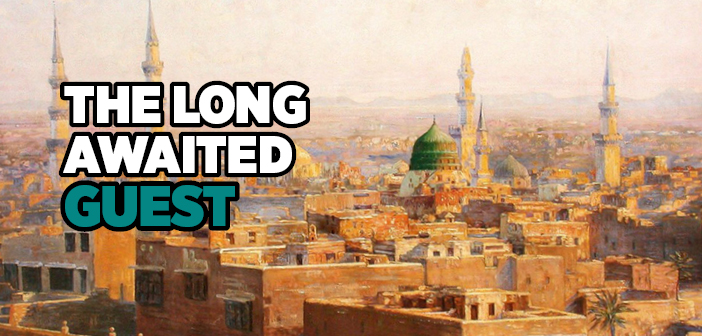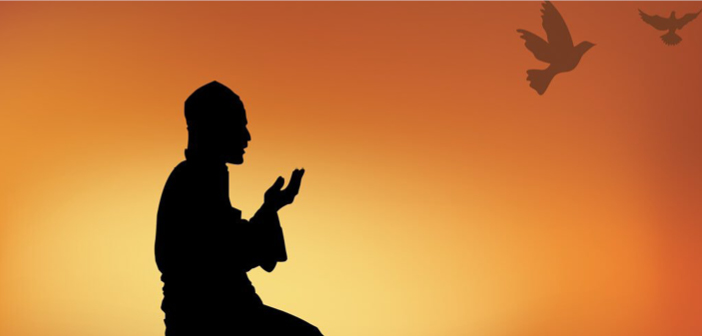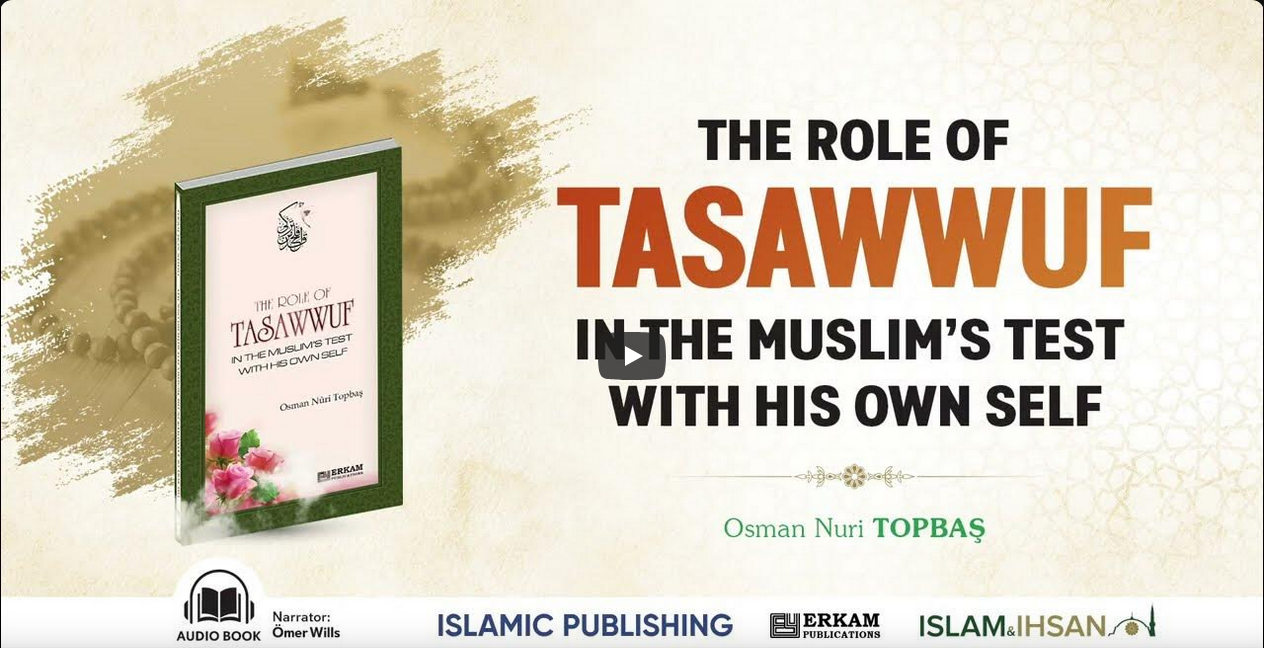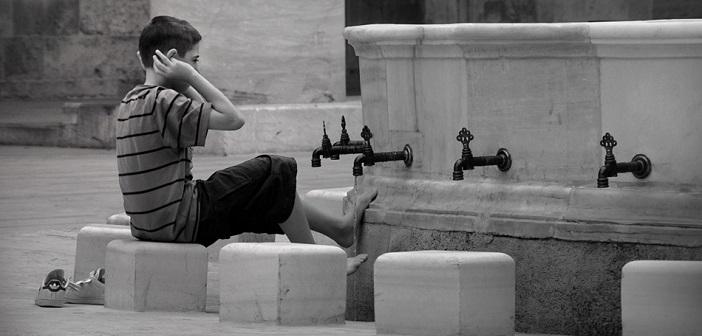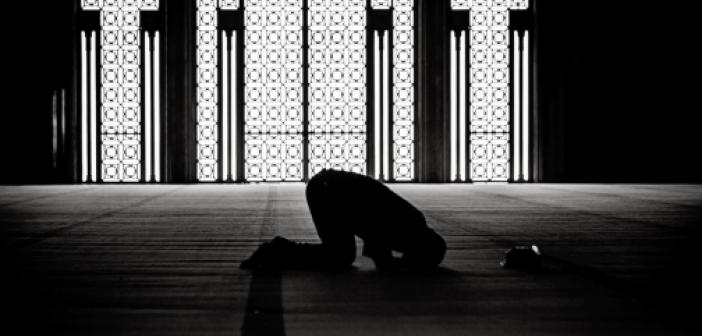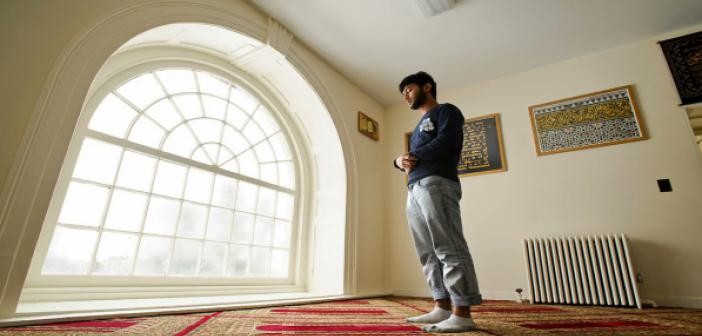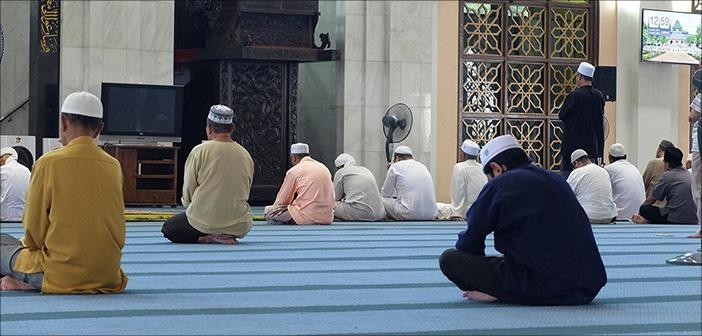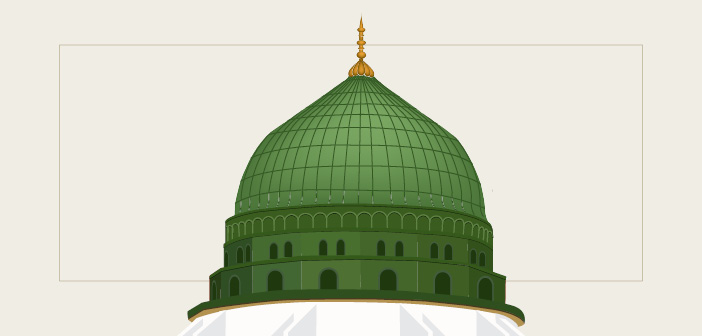
The Nervous Wait in Medina
Prophet Muhammad was about to arrive in the Medina. The people of Medina were looking forward to prophet Muhammad.
Before leaving Quba for Medina, the Messenger of Allah -upon him blessings and peace- summoned the Najjar Clan, among whom were his maternal uncles, for support. Armed, they quickly heeded the call, and greeting the Prophet -upon him blessings and peace-, they assuredly told him:
“Mount your camels for the journey. Your protection is assured.”[1]
With the Friday Salat completed, accompanied by Abu Bakr –Allah be well-pleased with him-, the notables of Najjar and other Muslims, the Noble Prophet -upon him blessings and peace- mounted his camel Qaswa to make his long awaited entrance into Medina.
The departure of the Prophet -upon him blessings and peace- and the pain of no longer being able to have him as guest slowly sinking in, the Qubans said in a heartfelt plea:
“Messenger of Allah! Are you leaving because you are tired of us or is it just that you’re leaving for a better place?”
“I have only been commanded to go to Medina”, the Prophet -upon him blessings and peace- replied, consoling them and assuring them of his contentment with their company. (Dyiarbakri, I, 339)
All the Medinan Muslims, without exception, wanted to lodge the Prophet -upon him blessings and peace- as guest. As that burning desire in each and every Muslim to take the noble guest home was threatening to turn into a dispute, the Blessed Prophet -upon him blessings and peace-, referring to his camel Qaswa, had to intervene:
“Better you stay out of the camel’s way; she has her instructions.” (Ibn Hisham, II, 112-113)
This was the only way to avoid heartbreak in determining where the Noble Messenger -upon him blessings and peace- would end up lodging.
After a couple of temporary pauses, the gifted camel indeed ended up crouching on the vacant land in front of the home of Khalid ibn Zayd, better known as Abu Ayyub al-Ansari –Allah be well-pleased with him-. The lucky companion was in an inexpressible bliss.
“Please, Messenger of Allah! Honor the house of your humble host!” said Abu Ayyub –Allah be well-pleased with him-, immediately inviting the Prophet -upon him blessings and peace- in.
Walking towards Abu Ayyub’s –Allah be well-pleased with him- house, the Noble Prophet -upon him blessings and peace- was met with the little girls of the Najjar clan, singing merrily with drums in their hands:
“The bliss of being the daughters of the sons of Najjar,
Compare little to being neighbors with the Messenger!”
The Beloved Messenger -upon him blessings and peace- then asked them:
“Tell me—do you love me?”
“Yes, we love you very much”, they replied.
Delighted to see their joy, the Prophet -upon him blessings and peace- replied:
“Only Allah knows how much I love you all! By Allah, I love you all, too. By Allah, I love you all, too!” (Ibn Majah, Nikah, 21; Diyarbakri, I, 341)
Bara ibn Azib –Allah be well-pleased with him- mentions the following:
“Never have I seen the Medinans happier than the day of the Prophet’s -upon him blessings and peace- arrival. All Medinans, young and old, male and female, had flocked to the streets, climbed on their rooftops, shouting ecstatically, ‘The Messenger of Allah has arrived! O Muhammad! O the Prophet of Allah!’” (Bukhari, Manaqib’ul-ansar, 45; Muslim, Zuhd, 75)
Anas ibn Malik –Allah be well-pleased with him- recalls similar memories:
“I do not remember a day more joyful, more beautiful and with greater light than the day the Messenger of Allah -upon him blessings and peace- honored Medina. It was as if the whole town was bathed in light.” (Ahmed, III, 122; Tirmidhi, Manaqib, 1/3618)
As a sign of their appreciation for the Prophet’s -upon him blessings and peace- coming to Medina, the Medinan Muslims sacrificed a camel.[2]
The love the Believers nurture for the Blessed Prophet -upon him blessings and peace- is expressed beautifully in the couplet below:
Aman is the same as your honorable name,
For a lover, O Prophet, your remembrance is aman…
Both the expression aman, which is a plea of help, and the name Muhammad have the same abjad value of 92, poetically hinted at above in expressing that a lover’s cry of aman is essentially a desire for none other than the Blessed Prophet -upon him blessings and peace-. A spectacular poetic insight indeed!
The Hegira marked the end of the Meccan era, signaling a brand new phase in Medina.
[1] Bukhari, Manaqıbu’l-Ansâr, 46.
[2] Ahmed, III, 301.
Source: Osman Nuri Topbaş, Sufism, Erkam Publications
THE LONG AWAITED GUEST
THE LONG ROAD FROM MECCA TO MEDINA: HIJRAH


